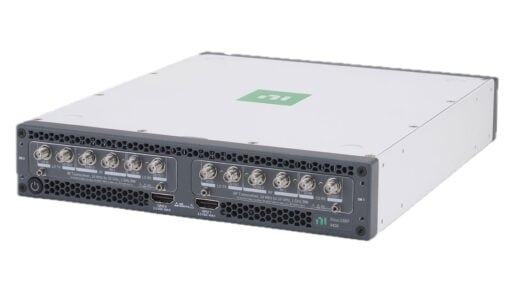Called, EMBRaCE, (Enhanced Monitoring for Better Recovery and Cancer Experience), the trial is a collaboration between Manchester University NHS Foundation Trust, The Christie NHS Foundation Trust, The University of Manchester, Aptus Clinical and Zenzium.
The trial has opened initially for blood cancer, lung, and colorectal cancer patients and will run across Greater Manchester.
Using commercially available health sensors and devices in combination with AI could reveal digital fingerprints associated with vital signs and other clinical data that could allow doctors to assess the progress of their patients and potentially improve patient outcomes.
The technologies under investigation include:
- A smart ring, worn on any finger made by Oura Health
- The Withings ScanWatch, a hybrid smartwatch
- The Isansys system, which is worn on the chest
AI capabilities developed and provided by Zenzium
The technologies can assess a range of vital signs, including electrocardiogram (ECG), heart rate, temperature, physical activity levels and sleep.
Dr Anthony Wilson, Consultant in Anaesthesia and Critical Care at Manchester Royal Infirmary (MRI), part of MFT, is the clinical lead for the project. He said: “Cancer places a huge burden on the lives of people everywhere. This study uses cutting-edge technology that can monitor people during their treatment, with devices that they can wear all the time. We hope that it will provide new insights into how people cope with cancer treatment and what we can do to improve their recovery.”
Dr Michael Merchant, Senior Lecturer in Proton Therapy Physics, at The University of Manchester, added: “This trial will assess if the latest wearable technology has a role in cancer care. It will help us to identify ways that clinical staff can individualise treatment before, during, and after therapy. We will find out if 24/7 data from these wearable sensors can be used to support patient recovery and provide accurate measurement outside clinic.”
Zenzium will contribute its knowhow, technology and expertise in wearable technology, continuous data collection and AI to the study to analyse and discover key patterns within patient data. Zenzium will use its DeepHRV and VitalPREDICT capabilities in the study.
Anthony D. Bashall, Managing Director of Zenzium, said: “We firmly believe the future of healthcare will be driven by continuous rather than episodic measurements to improve patient outcomes on an individual basis. We are excited to be part of this ground-breaking collaboration with some of the best entities in the field, which gives us the opportunity to bring our technology, knowledge and expertise in wearable devices enabled by AI to potentially make a real difference in the lives of patients.”
Steve McConchie, CEO of Aptus Clinical, a clinical contract research organisation based in Alderley Park, Cheshire, said: “We are delighted that the clinical data collection and curation infrastructure we initially created to support an important piece of exploratory research into COVID-19 is being expanded to assess the utility of patient wearables to improve the care of cancer patients across Manchester. We look forward to continuing this collaboration with our partners at MFT, The Christie, and Zenzium and are pleased to be supporting research with the potential to make a real difference to patient’s care.”
Thomas Westworth, 70, is from South Lakeland in the Lake District. Now retired, he was self-employed within the building trade for 40 years and has been receiving care for lymphoma at Manchester Royal Infirmary, part of Manchester University NHS Foundation Trust (MFT), for three months.
Mr. Westworth will be taking part in the trial in the next couple of weeks when he receives his first infusion of CAR-T (Chimeric Antigen Receptor T-cell) therapy – a personalised medicine used to treat patients with certain types of leukaemia and lymphoma.
Mr. Westworth said he is ‘fascinated by technology’ and was happy to consent to taking part in EMBRaCE when he was approached by the study team.
“I said if could be of any help I’d be happy to take part,” said Mr Westworth. “I think the actual idea behind the trial is fantastic, I think it should help people. All the staff here at Manchester Royal Infirmary and other hospitals where I have been cared for have been fantastic, everyone is absolutely brilliant.”
EMBRaCE is funded by the GM Cancer Digital Innovation Fund, UK Research and Innovation and the National Institute for Health Research (NIHR) in collaboration with Aptus Clinical and Zenzium.







